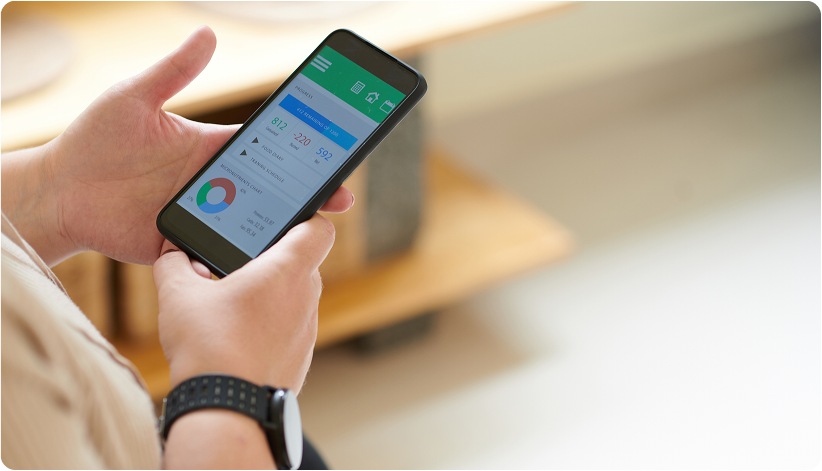
The world of mobile apps is a crowded space, and building an Android app that stands out requires more than just good design. It takes expert development, seamless functionality, and ongoing support. For many businesses, the solution lies in outsourcing Android app development. But with so many options out there, how do you ensure you’re partnering with the right team to bring your vision to life?
Outsourcing gives you access to world-class developers who specialize in Android app development, and with the right partner, you can achieve results faster and more affordably than through in-house development. Whether you’re a startup looking to scale your first app or an established company needing to refresh your app offering, outsourcing can help you achieve your goals efficiently and effectively.
In this blog, we’ll explore the process of outsourcing Android app development, highlighting key steps to help you avoid common mistakes and ensure a successful outcome. We’ll also share real-world examples and strategies that have helped businesses, like yours, navigate the outsourcing journey with confidence and see remarkable results.
What Does Android Application Development Outsourcing Mean?
Outsourcing Android app development refers to partnering with an external team or company to manage all or part of your app development process. This approach allows businesses to tap into specialized expertise, advanced technologies, and efficient development practices—without the overhead of building and maintaining an in-house team.
Here are some of the key benefits of Outsourcing Android App Development:
Access to Specialized Expertise: Work with professionals who specialize in Android development, ensuring high-quality and innovative solutions for your app.
Cost Efficiency: Outsourcing to regions with lower labor costs can significantly reduce your expenses while maintaining top-notch standards.
Focus on Core Business: Free up your internal resources and allow your team to concentrate on the core aspects of your business, leaving app development in the hands of experts.
Outsourcing vs. In-House App Development
Choosing between outsourcing and in-house development requires evaluating the advantages and challenges of each option. Here’s a breakdown of the key factors to consider:
1. Time & Project Duration
Outsourcing often accelerates the process, as you can collaborate with a team that already possesses the required expertise. On the other hand, in-house teams may face delays due to the time needed for hiring, training, and onboarding.
2. Access to Skilled Developers
Outsourcing allows you to access to a global talent pool, giving you the opportunity to hire specialized experts for your Android app. In comparison, in-house teams may have a more limited skill set due to the size and scope of your organization.
3. Technology & Tools Availability
Outsourcing companies typically have access to the latest tools and technologies, ensuring your app is developed with modern, high-quality software. In contrast, in-house teams may struggle with keeping up-to-date or may not have the resources to invest in cutting-edge technologies.
4. Scalability & Flexibility
Outsourcing provides greater flexibility in adjusting your team size based on project needs. In-house teams, however, often have fixed capacities, which can limit their ability to scale effectively.
5. Overall Cost & Resource Comparison
Although outsourcing can lead to cost savings on labor, in-house teams often involve hidden expenses such as recruitment, employee benefits, and office infrastructure.
6. Focus on Core Business
Outsourcing Android app development enables your company to concentrate on its core strengths and strategic growth, rather than redirecting resources toward the specialized task of app development.

How to Outsource Android App Development?
If you’ve decided to outsource, here’s how to ensure a successful collaboration:
1. Define Project Scope & Goals
Clear communication is key. Clearly outline your app’s requirements, desired features, and business goals upfront. This will help prevent scope creep and ensure everyone is on the same page.
2. Choose the Right Outsourcing Model
There are different outsourcing models to consider, depending on your project needs:
- Freelance developers: Ideal for small projects or specific tasks.
- Dedicated outsourcing teams: Suitable for larger, more complex apps requiring ongoing collaboration.
3. Find a Reliable Development Partner
Take time to research potential partners. Choose an outsourcing company with a proven track record, positive client feedback, and the necessary expertise for your project. Check portfolios and references to assess their capabilities.
4. Set a Clear Budget & Timeline
Establish a realistic budget and timeline from the start. Having a well-defined agreement will help avoid misunderstandings and keep the project on track.
5. Establish Effective Communication Channels
Frequent and open communication is crucial. Set up regular communication channels (email, video calls, instant messaging) to stay connected, address issues promptly, and ensure smooth collaboration
6. Ensure Security & NDA Agreements
Protect your intellectual property by putting a Non-Disclosure Agreement (NDA) in place before sharing sensitive information or app ideas.
7. Plan for Testing & Quality Assurance
Quality assurance is vital for a successful app. Make sure testing is included at different stages of development to catch issues early. Include QA processes in your contract to ensure your app meets high standards.
8. Discuss Post-Development Support & Maintenance
The work doesn’t end at launch. Ensure you have a support and maintenance plan for ongoing bug fixes, updates, and improvements post-launch.
Freelance Android Developer vs. Dedicated Android App Development Company
When outsourcing Android app development, one of the first decisions you’ll face is whether to hire a freelance developer or a dedicated app development company. Here’s a detailed look at how these two options compare across different categories:
| Criteria | Freelance Android Developer | Dedicated Android App Development Company |
|---|---|---|
| Project Complexity & Expertise | Best for smaller projects or specialized tasks. Limited breadth of expertise for complex apps. | Ideal for larger, complex projects. Offers a broad range of expertise in Android, UI/UX, and backend development |
| Team Resources & Scalability | Works alone, limiting the ability to scale the team or project quickly. | Provides a full team (developers, designers, project managers) that can scale as needed. |
| Communication & Project Management | May require more oversight and self-management. Communication could be inconsistent. | Structured communication with dedicated project managers ensuring smooth collaboration and timely updates. |
| Security & Reliability | May not have robust security protocols, posing potential risks to data protection. | Implements strong security measures, including NDAs and secure coding practices to protect your app. |
| Cost Considerations | More affordable, particularly for small projects, but rates can vary based on expertise. | Generally more expensive but provides comprehensive services and expertise that offer long-term value. |
| Post-Development Support & Maintenance | Limited post-development support. May not be available for future updates or bug fixes. | Offers ongoing support and maintenance packages, ensuring your app remains updated and bug-free. |
Choosing the Right Application Development Outsourcing Providers
Selecting the right outsourcing provider is a critical step toward ensuring the success of your Android app development project. To make the best decision, keep these key factors in mind:
Proven Technical Expertise & Skilled Resources
The provider you choose should have deep expertise in Android app development, with a track record of building successful apps. They should also be familiar with the latest technologies and tools to ensure your app is modern, efficient, and scalable.
Clear Communication & Efficient Project Management
Effective communication is the backbone of any successful outsourcing project. Opt for a partner who is proactive in keeping you updated with progress and has a well-organized project management process. This ensures smooth collaboration, timely updates, and fewer misunderstandings.
Relevant Industry Experience & Strong Portfolio
It’s essential to work with a provider who has experience in your specific industry. Their understanding of your business goals and target audience will lead to more
customized solutions. Additionally, look at their portfolio to assess the quality and variety of Android apps they’ve developed in the past.
Client Reviews, Testimonials, & Reputation
Customer feedback speaks volumes. Read reviews and testimonials from past clients to understand the provider’s reliability, work quality, and professionalism. Don’t hesitate to ask for references to get first-hand accounts of the provider’s capabilities and work ethic.
Security & Compliance Standards
Data security and privacy are paramount. Ensure that the company follows stringent security protocols and adheres to industry regulations, especially if you’re dealing with sensitive user data. A reputable outsourcing partner should be well-versed in security best practices and compliance requirements like GDPR, HIPAA, or PCI-DSS.
Cost-Effective Development, Especially from India
Cost is always an important factor, but it’s crucial to strike a balance between affordability and quality. India has become a global leader in outsourcing due to its high-quality mobile app developers and competitive pricing. Working with an Indian outsourcing company can provide substantial cost savings without compromising on the quality of your Android app
Cultural Compatibility & Time Zone Alignment
While technical skills are important, cultural compatibility is often overlooked. A partner who understands your company’s culture will communicate more effectively and work collaboratively toward shared goals. Also, consider time zone differences. A development partner in a time zone that aligns well with your working hours can improve real-time communication and speed up development.
Post-Launch Support & Maintenance
Don’t forget to discuss post-development support. Make sure your provider offers maintenance and support packages after the app is launched. This includes addressing any bugs, implementing updates, and making improvements as user needs evolve.
Why Businesses Should Outsource App Development
Outsourcing Android app development isn’t just about saving costs—it’s about gaining access to a world of benefits that can help your business thrive. Here’s why more and more companies are choosing to outsource:
No Hiring Hassles, Just Results
Outsourcing frees you from the time-consuming and often expensive process of hiring, training, and retaining in-house developers. Instead, you get immediate access to a team of experts, ready to dive into your project without the usual HR headaches.
Stay Ahead with the Latest Technology
Technology is evolving at lightning speed, and staying up-to-date with the latest tools and frameworks can be costly and time-consuming. Outsourcing gives you access to cutting-edge technology, without the need for constant investments in training or infrastructure.
Lower Risks & Streamlined Compliance
Outsourcing partners take on much of the risk associated with meeting deadlines, handling legal matters, and ensuring regulatory compliance. This not only saves you time but also shields your business from potential legal and financial pitfalls.
Flexibility to Suit Your Business Needs
Whether you need a fixed-price arrangement, hourly billing, or a dedicated team, outsourcing provides you with a range of flexible engagement models. This adaptability ensures that your app development project fits your budget, timeline, and business goals perfectly.
24/7 Development Cycle
With teams across different time zones, outsourcing enables a continuous development cycle. Your app can progress around the clock, accelerating time-to-market and ensuring faster turnaround times for updates and new features
Proven Expertise, Proven Success
When you work with an experienced outsourcing partner, you’re tapping into a team with a proven track record of delivering successful apps. Their experience minimizes the chances of setbacks and ensures your project stays on course, from concept to launch.

Case Study: How iTech Enabled a Major Urban Transit System to Launch a Mobile App
Outsourcing Android app development can deliver strong results, as demonstrated in the successful collaboration between iTech and a major metro transit authority. iTech, a reliable partner in mobile app development, supported the end-to-end process of designing and launching a mobile app tailored for daily commuters.
The app offers features such as real-time transit updates, route planning, and digital ticketing—all aimed at improving the daily travel experience. iTech’s technical expertise helped create a user-friendly and efficient platform that met both commuter expectations and operational goals.
This case study shows the value of choosing the right development partner. With timely delivery, solid performance, and a focus on user needs, iTech played a key role in launching a practical and impactful transit app that contributes to a more connected and efficient city.
Read the full case study here: How iTech Helped a Major Metro Transport Authority Launch Their Mobile App
How Much Does Outsourcing Android App Development Cost on Average?
The cost of outsourcing Android app development varies based on project complexity, the provider’s location, and the specific requirements. For a detailed breakdown, check out this guide on app development costs.
What Are the Risks Involved in Outsourcing Android App Development?
While outsourcing has many benefits, it’s not without risks:
1. Misalignment of Business Goals and Expectations
Clear and transparent communication is essential. Misunderstandings between you and the outsourcing partner can lead to misaligned goals and project outcomes. Make sure to articulate your expectations upfront and maintain regular discussions to stay aligned.
2. Challenges in Coordinating Across Different Time Zones
Working with teams across different time zones can sometimes result in communication delays or slower response times. It’s crucial to plan for these potential gaps by establishing overlapping working hours or asynchronous communication strategies.
3. Risk of Choosing an Inexperienced or Unreliable Vendor
Opting for a vendor without a proven track record can result in poor quality, missed deadlines, and frustration. Vet your outsourcing partner thoroughly by checking their portfolio, client testimonials, and references before making a decision.
4. Potential Delays Due to Poor Project Management
A lack of effective project management can derail timelines, cause budget overruns, and compromise quality. Ensure your outsourcing partner follows structured project management practices and provides consistent progress updates to avoid these issues.
5. Hidden Costs Due to Poorly Defined Contracts
Lack of clarity in contracts can lead to unexpected expenses. Be sure to have a detailed, well-defined agreement in place that outlines deliverables, payment schedules, and terms to ensure transparency and avoid unforeseen costs.
Curious how outsourcing can work for you? Read our case studies or speak with us to discover how we’ve helped businesses like yours succeed.
FAQs
1. How do I ensure my outsourced app meets my quality expectations?
Work with your outsourcing partner to set clear quality standards and conduct regular testing during development.
2. What level of involvement is required from my side during development?
Although your outsourcing partner manages the development, you should stay engaged with regular check-ins and provide feedback to ensure the project stays on track.
3. What outsourcing model works best for startups vs. enterprises?
Startups often opt for freelance developers or smaller teams, while enterprises typically prefer dedicated development companies that offer scalable resources.
4. How do I verify the credibility of an outsourcing company before signing a contract?
Check for a company with a solid portfolio, positive client feedback, and a proven history of success in your industry.
5. How can I protect my app idea when outsourcing development?
Make sure to have an NDA in place and clearly define intellectual property rights in your contract.
6. Can I outsource only a part of my app development instead of the entire project?
Yes, many companies offer partial outsourcing for specific tasks like UI/UX design or backend development.
7. What red flags should I watch for when selecting an outsourcing provider?
Watch out for providers with vague pricing structures, inconsistent communication, or a lack of transparency in their work processes, as these can lead to misunderstandings and delays.
8. How do I handle legal and compliance issues when outsourcing?
Ensure your outsourcing partner is familiar with the legal and regulatory requirements in your region and industry.
9. What post-development support should I expect from an outsourcing partner?
A reliable outsourcing partner should offer post-launch support, including bug fixes and updates.
10. Can I scale my outsourced team up or down as my project evolves?
Yes, one of the advantages of outsourcing is the flexibility to scale your team based on project needs.





